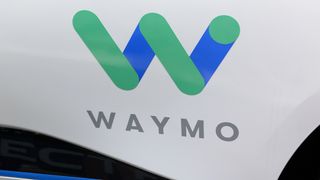Google's Waymo company wants to make soft autonomous cars
A patent describes cars that soften before impact

For the past few years, automotive companies have looked for ways to make cars crashes more survivable for pedestrians, and an idea by Google's Waymo company might be the most inventive yet. First spotted by Quartz, a patent from Waymo describes bodywork that can become softer just before contact with a pedestrian.
The patent described "tension members" that might be cables or rods, which can then tighten or loosen to reduce the rigidity of the car. If these loose body panels hit a pedestrian, the extra movement they allow could absorb some of the energy involved, giving the human a better chance of survival.
"If it is determined that a bicyclist is about to strike the hood and front bumper of the vehicle, the tension may be reduced for the tension members associated with the hood and front bumper, so as to reduce the rigidity of those surfaces," the patent reads.
Interesting, the patent also adds that this system will be able to differentiate between pedestrians and cars. That way, it will only be triggered before crashing into a soft human, and not an equally tough metal car.
While the technology could work in pretty much any car, Waymo filed the patent specifically for autonomous cars, and there's a good reason for that. Driverless cars will be connected, which means they'll be great at avoiding each other - but without a driver, they might be less good at avoiding pedestrians.
It's easy for humans to predict the driving of other humans, but it might be harder for pedestrians to predict the driving of AI-controlled cars. That's what these new safety features are designed to counteract.
Get the ITPro. daily newsletter
Receive our latest news, industry updates, featured resources and more. Sign up today to receive our FREE report on AI cyber crime & security - newly updated for 2024.




